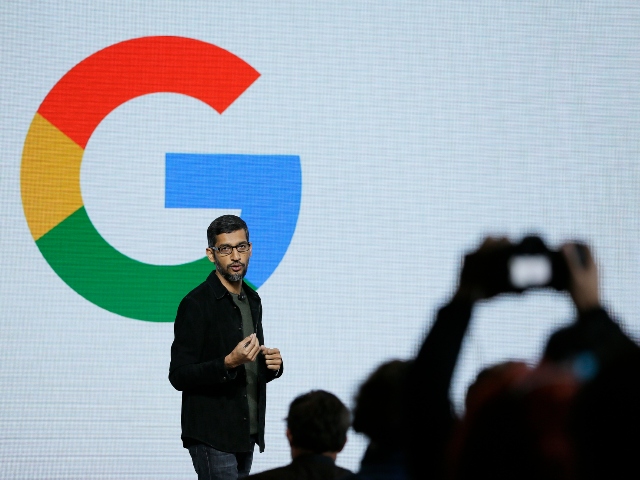As the DOJ’s antitrust case against Google continues, it is becoming increasingly clear that the judge must decide whether to believe what Google executives wrote in emails and chats or what they have said on the witness stand — like one witness who claimed his emails on crushing competition were “jet-lagged ramblings.”
The AP reports that the DOJ is concluding its antitrust case against tech giant Google this week in a federal courtroom in Alexandria, Virginia. The government, along with a coalition of states, argues that Google has established and maintained a monopoly over the technology used to facilitate the buying and selling of online advertisements that appear to consumers while browsing the internet.
Interestingly, many of the government’s key witnesses have been Google’s own managers and executives, who have often attempted to distance themselves from their written statements in emails, chats, and company presentations during their testimony.
One notable example is the testimony of Jonathan Bellack, a Google product manager, on Thursday. In a 2016 email, Bellack questioned whether there was a deeper issue with Google owning the platform, the exchange, and a vast network, comparing it to a scenario where Goldman Sachs or Citibank owned the New York Stock Exchange.
The Justice Department views Bellack’s description as a summation of its case, alleging that Google’s technology dominates the market used by online publishers to sell ad space, the tech used by large advertiser networks to purchase ad space, and even the “ad exchanges” that act as intermediaries between buyers and sellers. The lawsuit claims that Google’s dominance in all aspects of the transaction has allowed it to charge exorbitant fees amounting to 36 cents on the dollar for every ad impression that passes through its ad tech stack, while simultaneously shutting out competitors.
However, during his testimony, Bellack dismissed his email as “late night, jet-lagged ramblings,” stating that he did not believe Google’s control over the buy-side, sell-side, and middleman was problematic. Instead, he claimed to be speculating about why certain customers were seeking workarounds to Google’s technology.
The Justice Department maintains that the real-time writings of Google employees provide a more accurate reflection of reality. It also suggests that there would be even more incriminating documentary evidence if Google had not systematically deleted many of the internal chats employees used to discuss business matters, even after the company was notified of the ongoing investigation.
Testimony has revealed that Google implemented a “Communicate with Care” policy, instructing employees to include company lawyers in sensitive emails so they could be labeled as “privileged” and exempt from disclosure to government regulators. U.S. District Judge Leonie Brinkema described Google’s document retention policies as “absolutely inappropriate and improper,” noting that she has taken notice of this during the trial, although no specific punishment has been imposed.
As the government nears the conclusion of its case, the judge will be faced with the critical decision of whether to give more weight to the documentary evidence or the witness testimonies. The outcome of this trial could have significant implications for Google and the broader online advertising industry.
The AP contributed to this report
Read more at AP here.
Lucas Nolan is a reporter for Breitbart News covering issues of free speech and online censorship.
